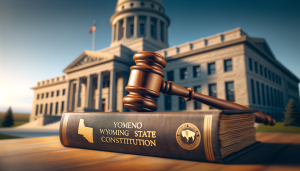Abortions in Texas Fell 97 Percent After Supreme Court Overturned Roe

Texas abortions fell to over 97% after Roe v Wade was overturned by the Supreme Court in June. This happened even before Texas’ “trigger ban” on abortions went into effect.
New data from Texas Health and Human Services regarding “induced terminations” of pregnancy shows that only 68 abortions were performed in the month of July, compared to 2,596 in June. In the first half 2022, an average of 2,854 abortions per month were performed.
This means that Texas abortions declined dramatically following the June 24 ruling, even though the Human Life Protection Act (or “trigger ban”) was in effect on August 25.
The ban prohibits abortion except in cases that save the mother’s health or prevent significant bodily impairment. This includes procedures such as removing miscarried children or ectopic pregnancies.
|
Violation can result in five to ninety years imprisonment and fines up to $10,000. Medical professionals may have their licenses suspended and the attorney general could seek civil penalties of up to $100,000.
Everyone who assists or aids in an abortion, except the mother, is subject to the law.
Between January and July, Texas saw 17,194 abortions. 301 were performed on “out-of state or unknown residents”.
More than three-quarters of them were done on women aged between 20 and 34. Around 17 percent of those performed were over that age range, and 7 percent below.
In 2022, around 61% of those who received abortions had never had one before. Only 5% had had more than three abortions in their lives.
After the Texas Heartbeat Act was implemented on September 1, 2021 there was an identical drop in abortions, dropping 60 percent from the previous month.
The Heartbeat Act makes it illegal to abort a child with detectable heart activity. This is usually found around the sixth week. The law does not apply to situations that could save the mother’s life or prevent bodily impairment, and the mother is exempt from civil action.
A state judge dismissed a Heartbeat Act lawsuit last Thursday for lack of legal standing, because the plaintiff wasn’t “directly affected” by the abortion.
Only 14 of the 17,000 abortions performed in Texas between July and this year were more than eight weeks following fertilization.










No Comments